Inspirational People
Michelin-Recognized Chef Reif Othman
Rim Nsouli
17-October-2025
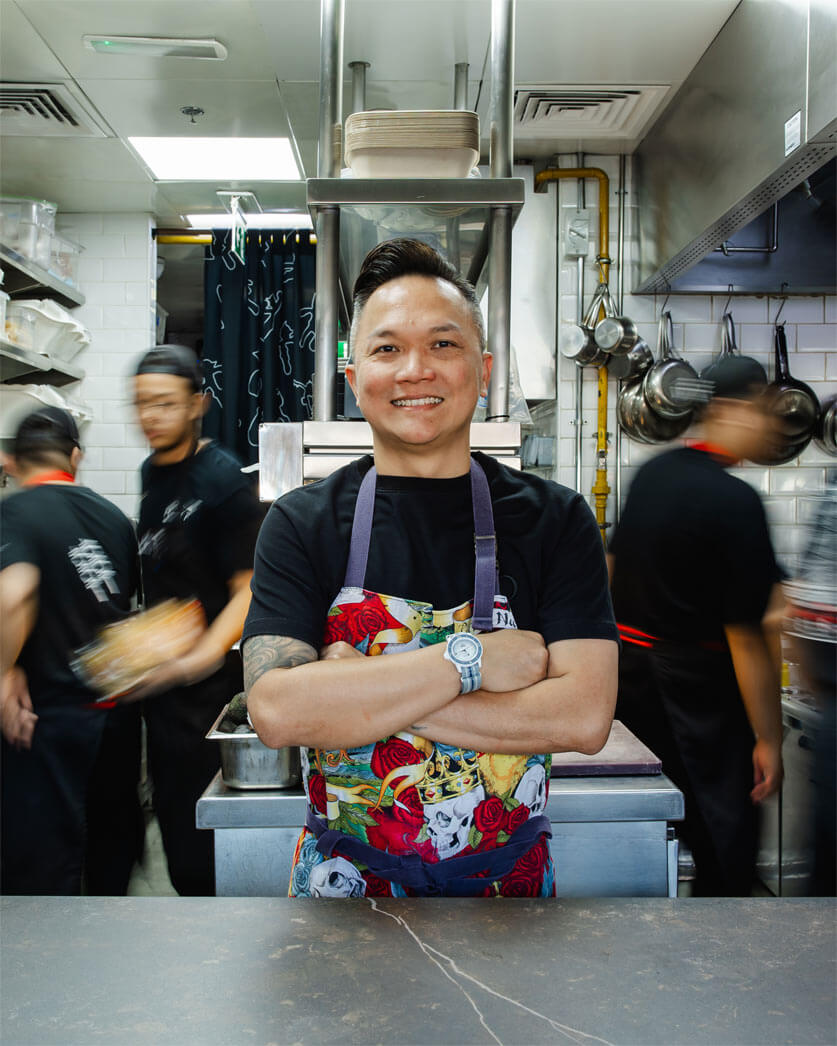
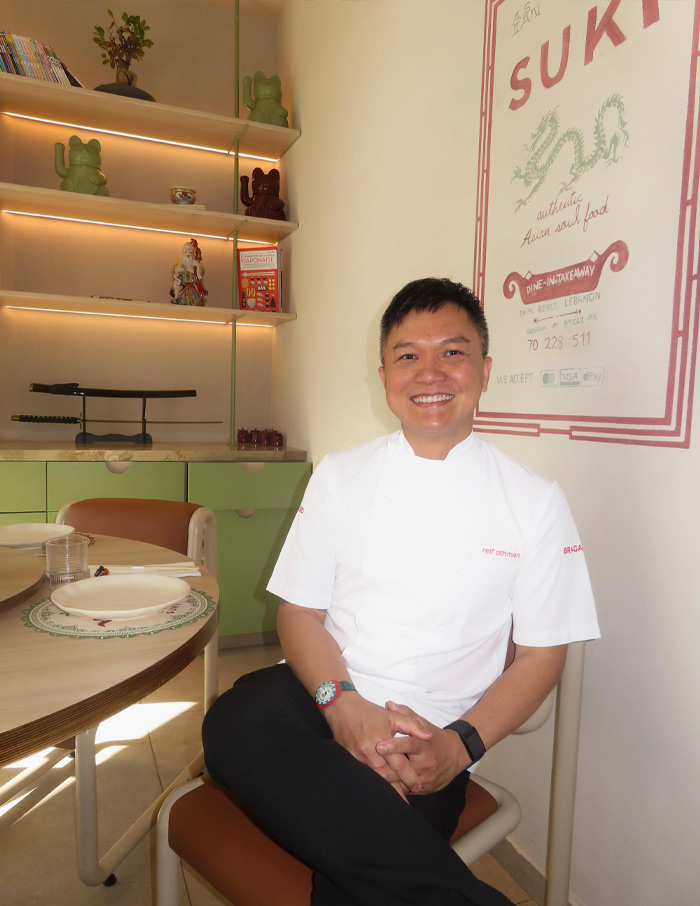
At SUKI, Head Chef Jeremy brings Chef Reif’s vision to life daily, leading the kitchen with precision and ensuring each dish embodies the restaurant’s fearless philosophy and distinctive take on Japanese and Far-Eastern cuisine.
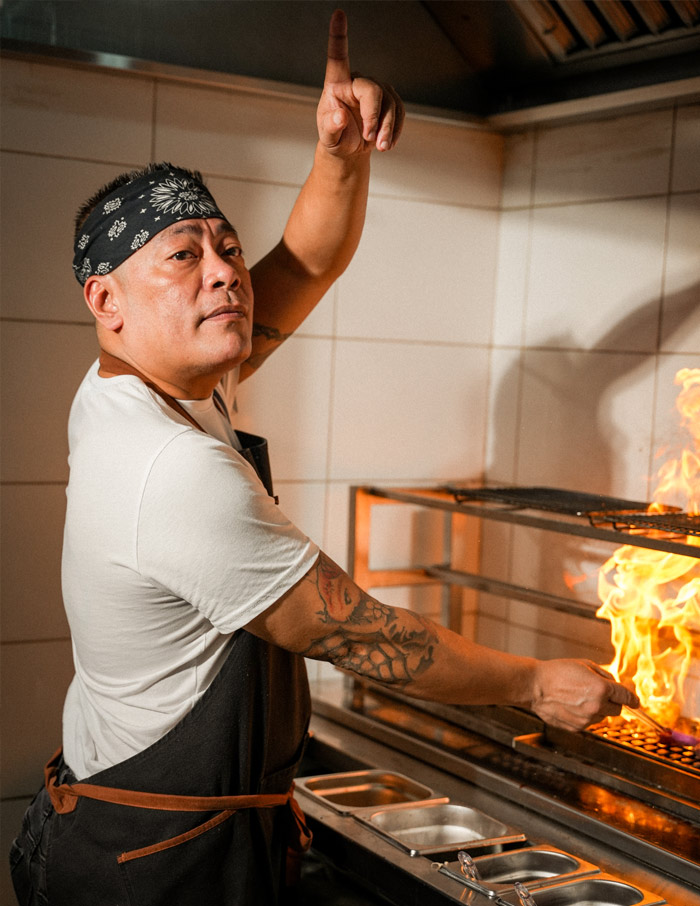
Spécial Madame Figaro had the chance of interviewing Chef Reif, offering an exclusive look into his culinary journey, inspirations, and the philosophy behind SUKI’s unforgettable menu.
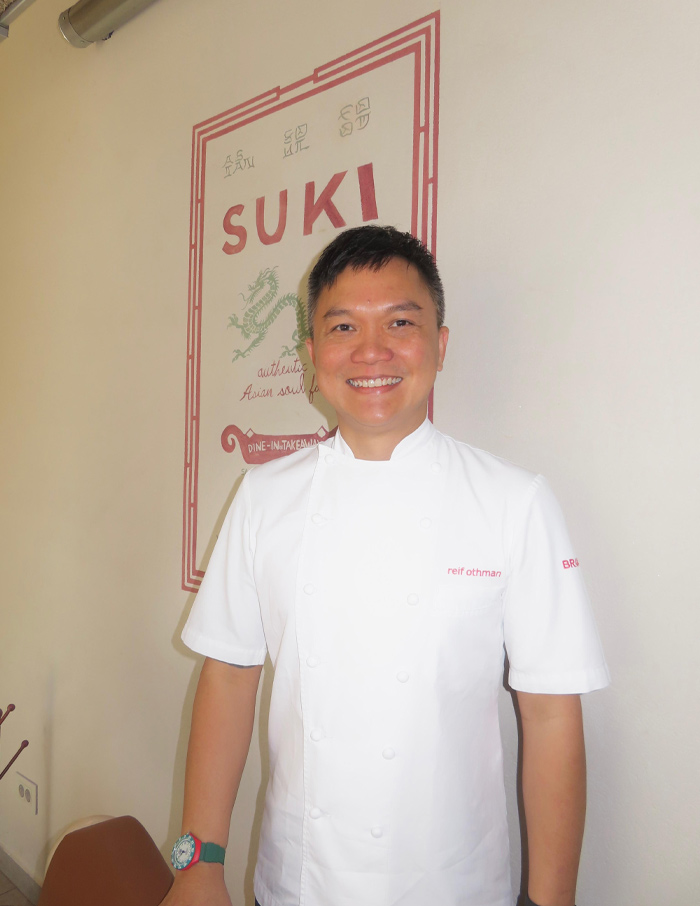
1. How do you view this expansion into Lebanon? Do you see it as an opportunity, and what challenges do you anticipate with this move?
I guess, as you know, Lebanon is always going through ups and downs. There’s always something happening. One minute everything is going well, and the next there’s an issue and it all goes down. It’s very sad to witness, but I see that Beirut is a beautiful city and it has so much potential, and people here love to go out and eat. This is my second time coming to Beirut, and it is also my second collaboration with a restaurant here.
2. When creating the menu for Suki in Lebanon, how did you balance authentic Asian flavors with local Lebanese tastes? What was your approach to blending the two?
Back at my restaurant in Dubai, I had a huge Lebanese customer base, so I can say that I know exactly what they prefer and what they like. So, coming here to create a menu for a restaurant like Suki is a no-brainer for me.
3. Did anything in the Lebanese culinary context influence your choices, or did you stay completely true to your original flavor palette?
I think when creating a menu for a Japanese restaurant, we should stay true to what we believe in. When people come, they should see that everything is Japanese—even the products—instead of infusing it with Lebanese cuisine. That would be wrong. So for Suki, I feel that we based everything very well on Asian culture, specifically Japanese, but with the help of Lebanese talent, I would say.
4. What’s your personal favorite dish on the menu, and what goes into it?
There’s no such thing as a favorite; all the dishes are special. But if there were one dish I’d eat every day, it’s shrimp toast. It’s basically Shokupan bread with a mince of shrimp spread on one side, topped with sesame, and we dip the whole bread. It has a nice crisp, a nice crunch, and with the sesame, it gives a perfect balance.
5. Is there a dish on the menu that carries a personal story or reminds you of a specific moment in your life? Or even of home?
I think it’s the Mushroom Claypot Rice and the Beef Claypot Rice. That’s what we do back in Singapore—I am originally from Singapore. We have this dish called Claypot Rice there; it’s basically rice, and I adapt it my own way. I can add mushroom, beef, chicken, or anything I want.
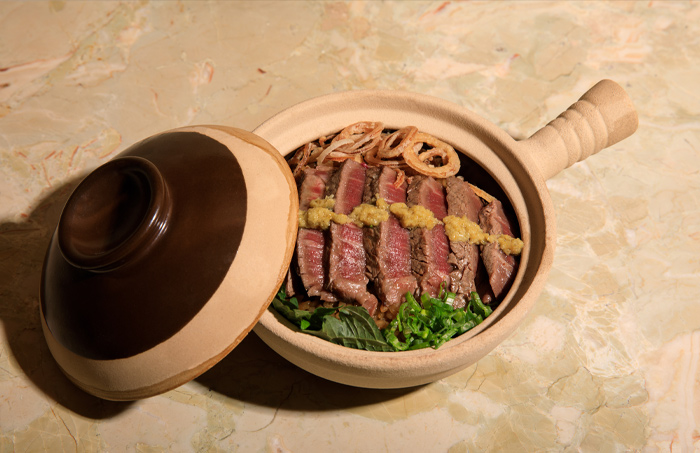
6. When developing a menu, how do you approach the balance between flavor, presentation, and texture?
As you can see, the concept is very simple, easy-going, very subtle, and not complicated at all, you know. I always believe in a simple, neat presentation rather than one that’s too complicated. Simplicity is the key. At the end of the day, if we’re making dinner for hundreds of people, I want to make sure that the chefs are consistent. So, I’d rather actually have a good choice of glassware and pottery instead. Here, we’ve got everything straight from Japan, and everything is made of concrete.
7. How long did it take you to finalize the Suki menu, and what were the main challenges you faced during the process?
It was not a challenge for me, actually. We were good to go after the first or second trial, so it didn’t take much time. But of course, when we opened the place here, I had my team come to train the chefs and everyone in the kitchen, just to make sure they got it right.
8. In your opinion, what makes the Lebanese audience unique when it comes to appreciating Asian cuisine?
I think that people from the Levant, especially Lebanese, travel around the world—they go to London, the US, and everywhere. But let’s say in Dubai, because it’s so close and modern in a different way, and they have so many choices when it comes to restaurants, all of this makes people love Asian food.
9. Have you tried Lebanese food yourself? If so, which dish is your favorite?
Yes, of course, I’ve tasted Lebanese food. It’s delicious. Lebanese cuisine is very distinctive; it’s very high in sour—they really like sour flavors in their food. As for my favorite dish, I don’t know the name, but it’s basically small diced meat cooked with soy sauce or pomegranate sauce.
10. What kind of story or dining experience did you want guests at Suki to walk away with after tasting your menu?
“I will come back tomorrow.” That’s how I want them to think, you know. We serve easy, comfort food, so I want them to feel like they’d want to come again as soon as possible.
11. Ultimately, what do you hope diners would take from the Suki experience?
The atmosphere, the staff, the good food. I want them to remember the whole experience, from the service to the food, from the consistency… I think the key to every restaurant business is having the whole package. But of course, what matters most is the consistency of the food. Let’s say you liked a dish, you can’t come back the next day and find that it tastes different—that would be a problem. But that doesn’t mean there isn’t always room for improvement.
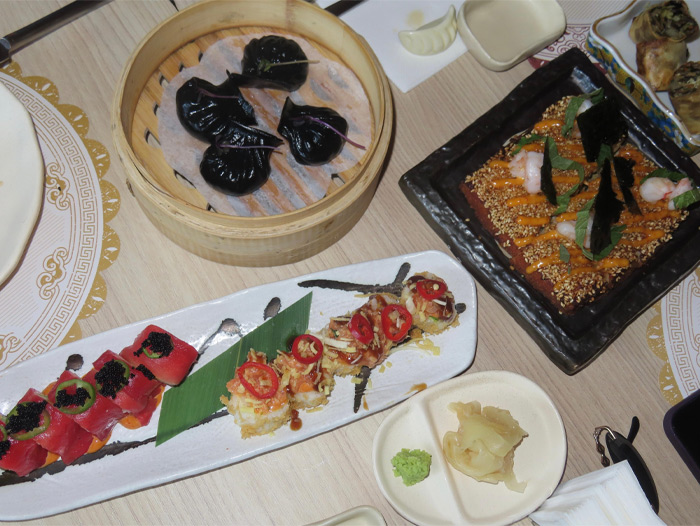
For more, check out our Cuisine section.
Recommended
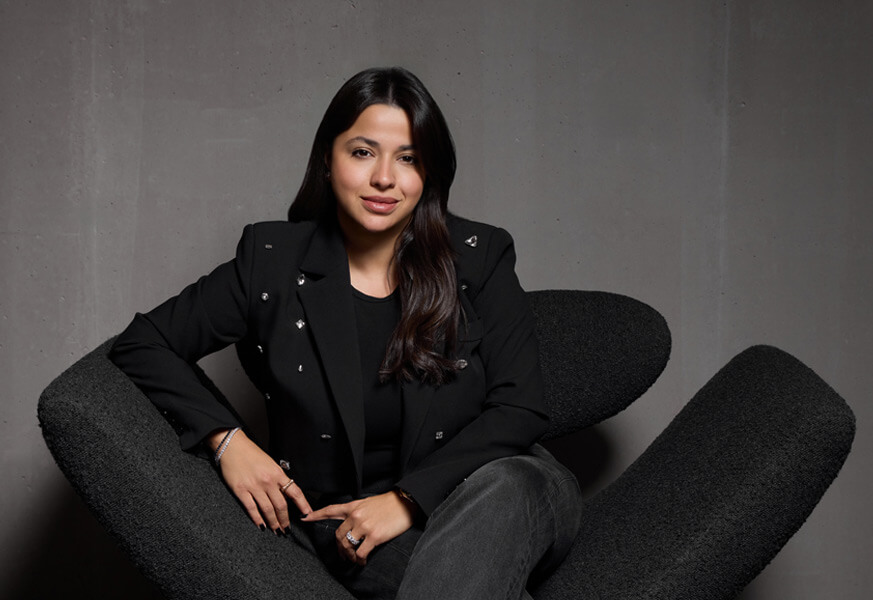
Rouba Kreidy, Founder & CEO of Create Agency: Redefining Resilience and Creativity in Times of Crisis
12-December-2025
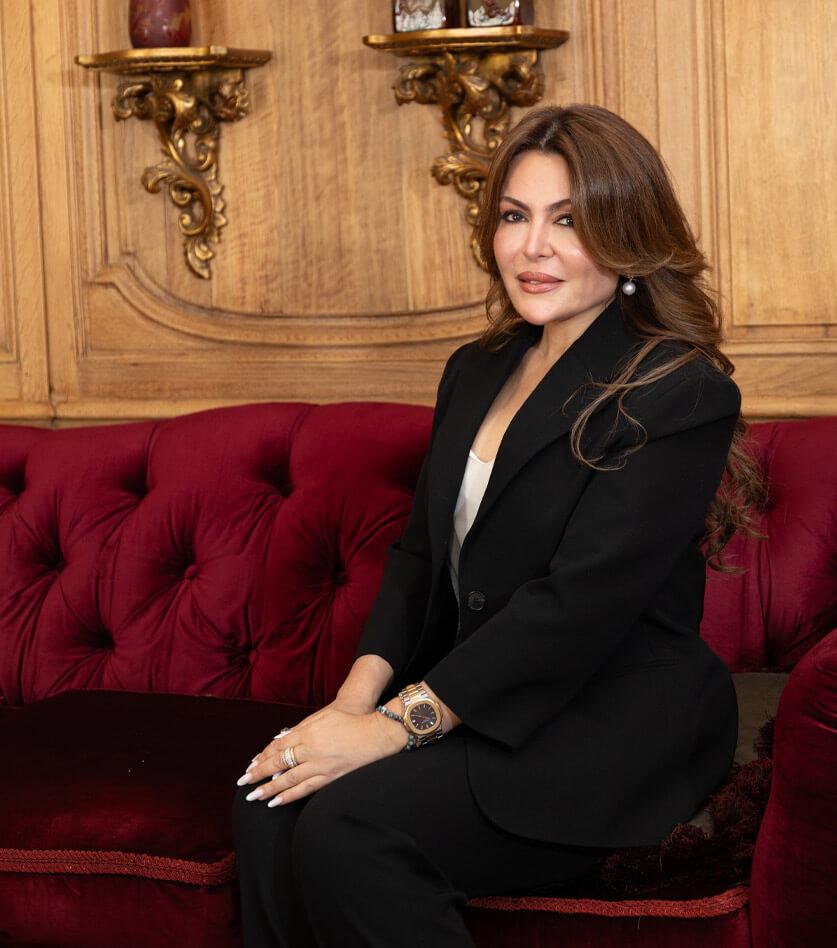
Heddy Rassekh Talks About Her Spring/Summer 2026 Collection in Paris
13-November-2025

Sarah Leena Bou Jaoude: “This is the message I want to carry to Miss Universe 2025”
5-November-2025
Most read
-
1
CesarARCHIVES Presents Its Debut Collection, “Il pleut sur la prairie”
-
2
What Is the New Animal Print Replacing the Leopard in 2026
-
3
Andrea Wazen Opens New Flagship Store at ABC Ashrafieh
-
4
Guerlain unveils a holiday tale like no other
-
5
Zuhair Murad Ready-To-Wear Pre-Fall 2026 Collection « Indomptée, Indomptable »


